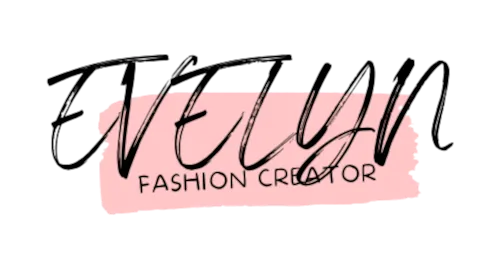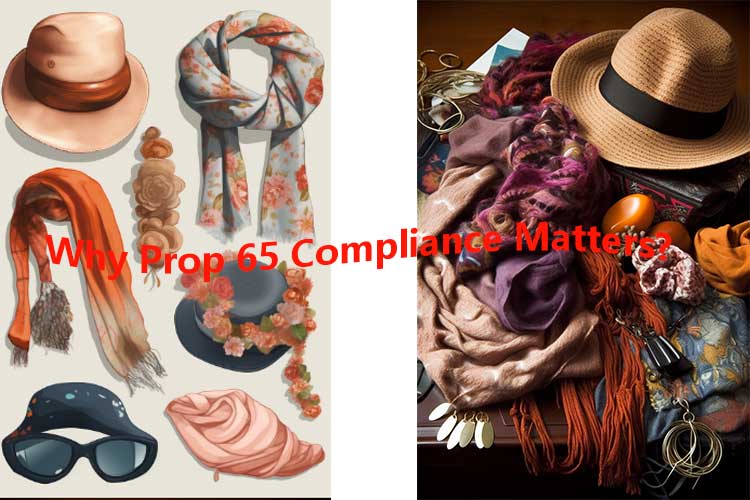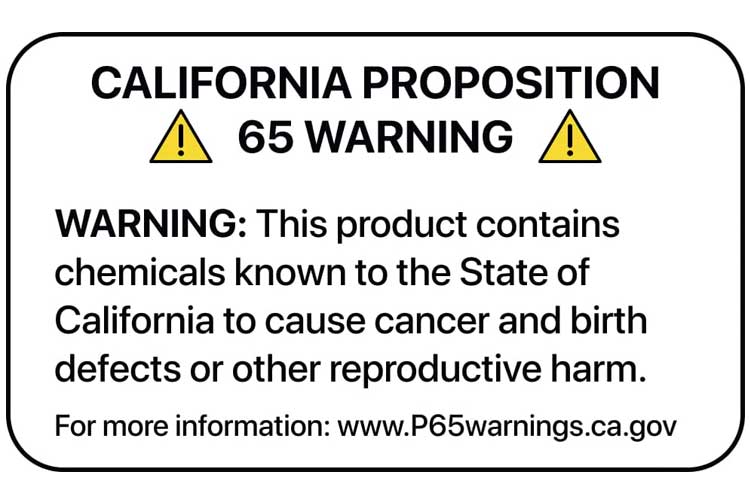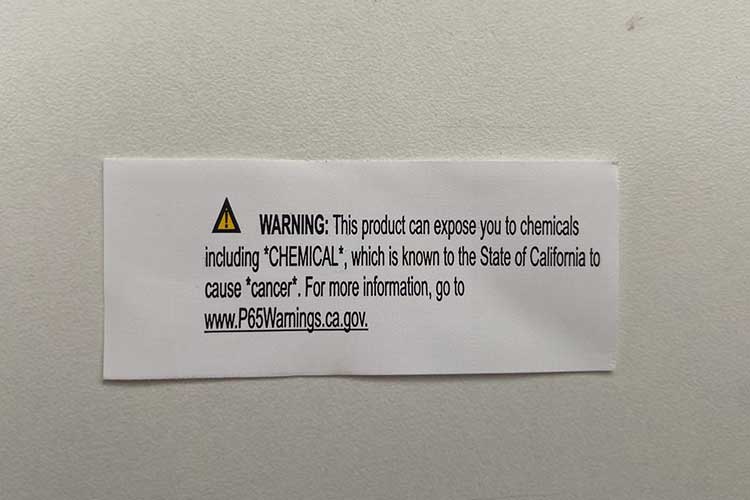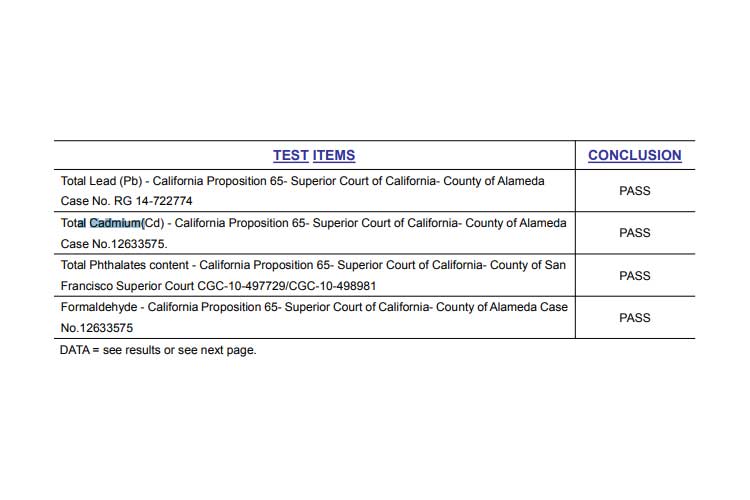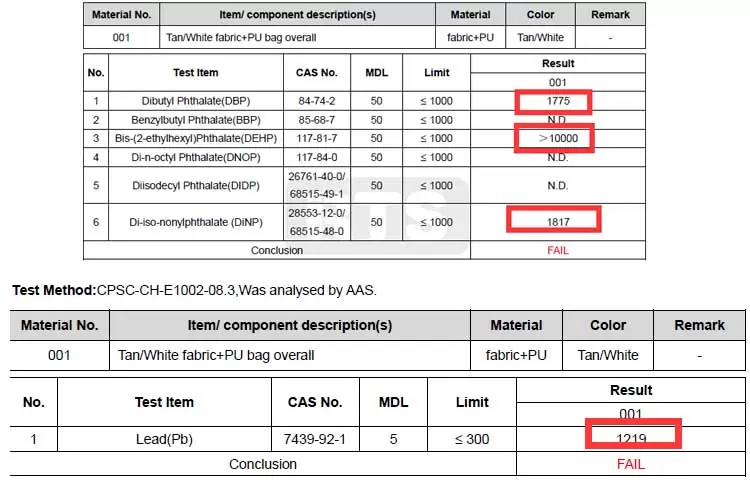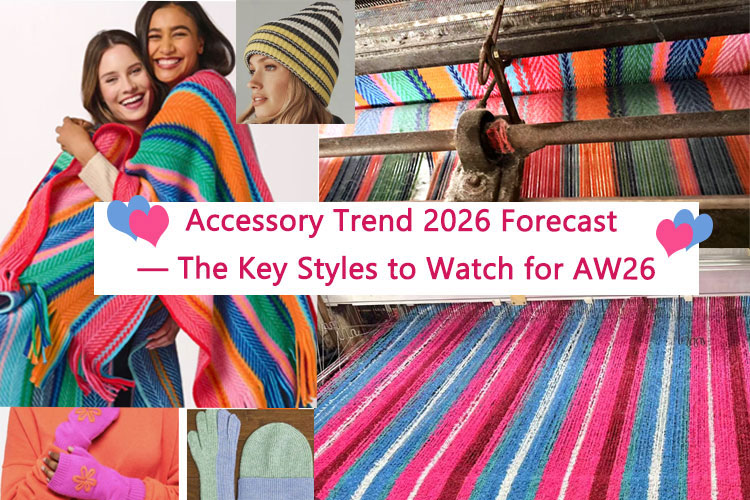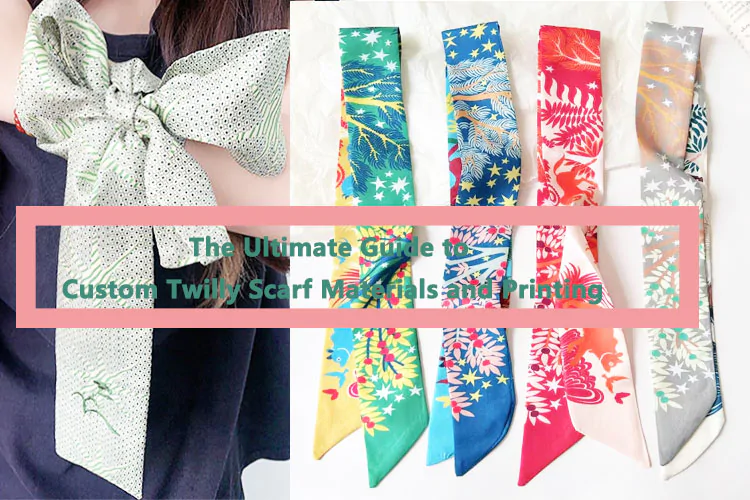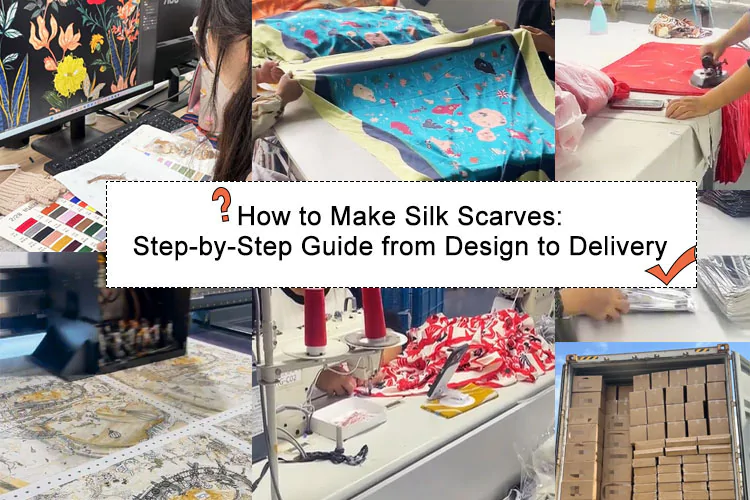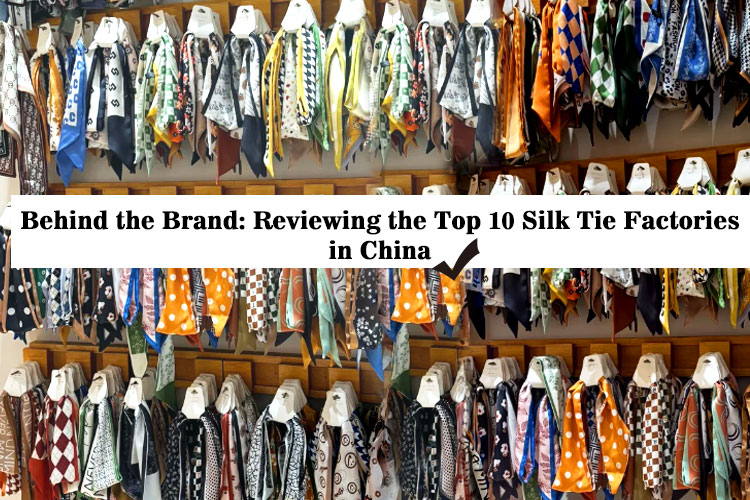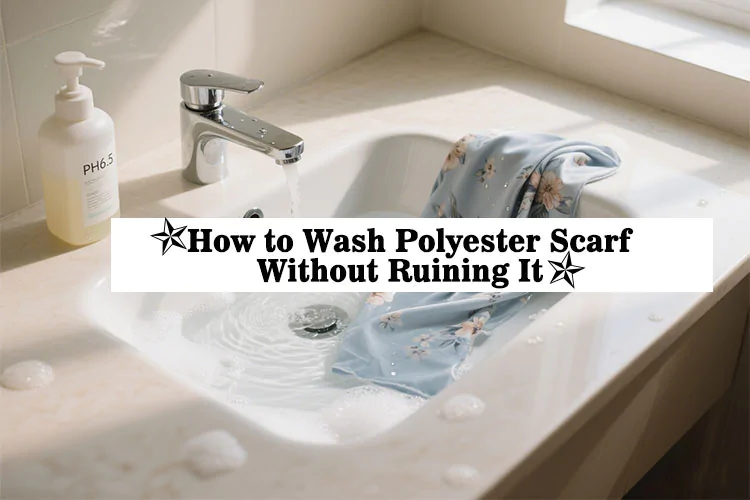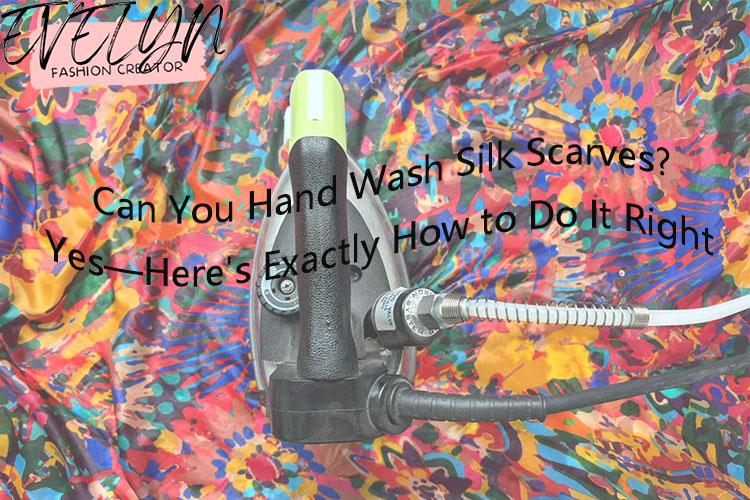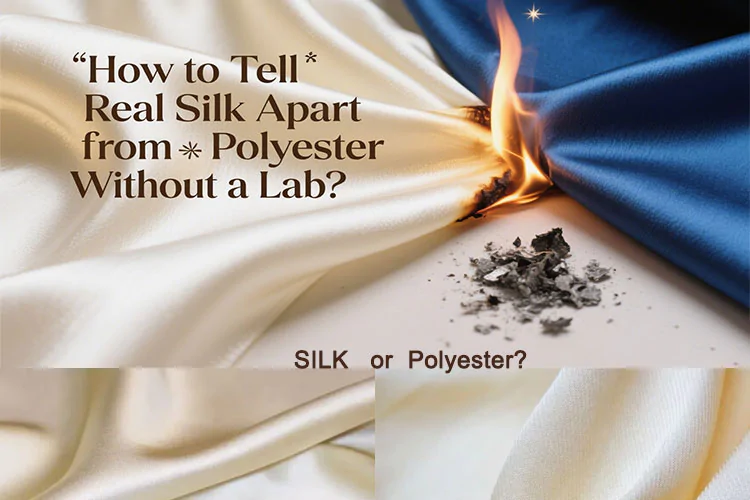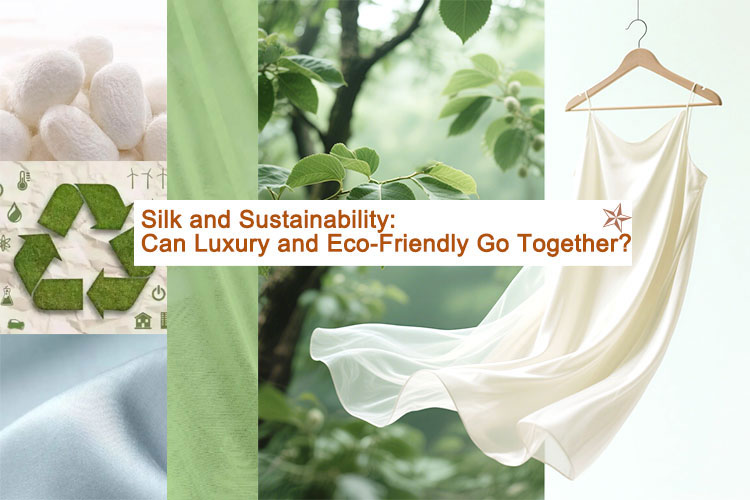In the world of fashion and accessories, it’s not all about style and glamour. We must also prioritize safety and compliance with regulations. Prop 65, the Safe Drinking Water and Toxic Enforcement Act of 1986, is one such regulation that should be on every fashion brand’s radar. It’s more than just a legal requirement; it’s about safeguarding the well-being of our customers and the reputation of our businesses.
Understanding Prop 65
Proposition 65, often referred to as Prop 65, is a California law designed to protect consumers from exposure to chemicals known to cause cancer, birth defects, or other reproductive harm. While it’s a California state law, its impact ripples far beyond state lines. It’s a well-known fact that California influences trends and standards across the United States and the world.
Prop 65 lists specific chemicals that are deemed hazardous. These chemicals include heavy metals like lead and cadmium, as well as harmful substances like phthalates. The consequences of Prop 65 non-compliance can be severe, with penalties and legal actions being a real possibility.
Prop 65 isn’t just for chemical manufacturers or industrial companies; it applies to the fashion and accessories industry as well.
Impact on Fashion and Accessories
Now, you may be wondering, “How does Prop 65 affect the fashion and accessories I produce?” The answer is that it applies to any product sold in California. Given the state’s large consumer market, the fashion and accessories sector is significantly impacted. From scarves to handbags, the reach is wide and comprehensive. Prop 65 compliance isn’t limited by the size of your business; it’s a requirement for all.
As we manufacture a wide range of products, including scarves, ruanas, kimonos, hats, and bags, etc for our valued customers in the United States, it’s essential to ensure that all our items not only meet but exceed the stringent Proposition 65 testing requirements. Given the heightened awareness and concern around Proposition 65 compliance, we’ve been receiving numerous inquiries and requests from customers who strongly recommend that we proactively affix Proposition 65 labels to their merchandise. This added commitment to transparency and safety further underscores our dedication to delivering quality products that meet the highest standards of compliance and consumer well-being.
Proposition 65 Testing and Certification
To ensure compliance with Proposition 65, rigorous testing is essential. Products must be tested for the presence of any of the listed chemicals. Indeed, third-party testing laboratories play a pivotal role in the Proposition 65 compliance process. These specialized labs offer impartial and unbiased testing procedures to evaluate the chemical composition of your products. Their assessments provide a level of objectivity and credibility that’s vital in verifying that your merchandise adheres to the rigorous standards set forth by Proposition 65. By obtaining certification from these reputable labs, you can offer your customers the assurance that your products meet the necessary safety requirements and are backed by reliable, independent verification.
Labeling and Notification
Correct labeling is crucial under Prop 65. Products containing any listed chemicals must bear specific warning labels. These labels should include a warning symbol, details about the type of exposure, and a link to the California Office of Environmental Health Hazard Assessment (OEHHA) for further information.
Communication is key in ensuring compliance. It’s not just about labeling; it’s also about informing your suppliers and manufacturers about Prop 65 requirements. This collaborative effort is essential to meet compliance standards effectively.
Reducing the Risk of Non-Compliance
Minimizing the risk of Prop 65 non-compliance involves proactive measures. You may consider sourcing alternative materials that do not contain listed chemicals(Pb, Cadmium, Phthalates, Formaldehyde), a step that aligns with the growing demand for sustainable and eco-friendly fashion.
Incorporate best practices in manufacturing to reduce exposure to harmful chemicals. Regularly update product information to reflect changes in materials and to ensure compliance.
It’s important to note that Proposition 65 compliance varies depending on the materials used in your products. Textile items made from various materials, including natural yarns, polyester yarns, and synthetic yarns, may still contain chemicals listed under Proposition 65. Therefore, it’s crucial to ensure that your textile products are tested for compliance.
For hardware and accessories, such as metal components or products made from PU (polyurethane), the focus should indeed be on the materials used. Many metal finishes and PU materials may contain chemicals that are listed under Proposition 65, which makes it important to prioritize eco-friendly and compliant materials in the design and manufacturing of these products.
In both cases, thorough testing and compliance with Proposition 65 are essential, whether you’re dealing with textiles, hardware, or any other product category. Compliance not only ensures legal adherence but also demonstrates a commitment to the safety and well-being of your customers.
Customer Awareness and Education
Educating your customers about Prop 65 is vital. Your customers should be aware of your commitment to safety and compliance. Providing information about Prop 65 and how your products adhere to these standards is an excellent practice. Promptly address customer questions and concerns regarding Prop 65 to build trust.
Proposition 65 isn’t just about regulations; it’s about demonstrating our dedication to safe and responsible business practices.
The Relevance of Prop 65 to Fashion and Accessories
Prop 65 is not just a legal requirement; it’s a game-changer for the fashion and accessories industry. Compliance showcases our commitment to the well-being of our customers. It’s not a burden; it’s an opportunity.
In the competitive world of fashion, standing out is crucial. Compliance can be your unique selling point. It tells your customers that you prioritize their safety. When they choose your scarves, ruanas, kimonos, hats, and bags, they choose products that meet rigorous safety standards.
Conclusion
In conclusion, Proposition 65 compliance is not an optional choice for fashion and accessories brands; it’s a responsibility. It’s an investment in your brand’s future, and it safeguards your customers’ well-being. Understanding the law, rigorous testing, correct labeling, and customer education are the pillars of successful Prop 65 compliance. It’s a commitment to safety, and it’s a commitment to excellence in the fashion and accessories industry.
If your current suppliers are not well-informed about the importance of Proposition 65 compliance, or if you’ve been struggling to find such suppliers, you might want to consider reaching out to EVELYN. Finding the right supplier can help ensure the compliance of your products and reduce potential legal risks. If you need any assistance regarding suppliers or compliance, it’s worth consulting EVELYN to see if they can meet your needs.
